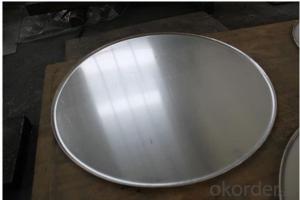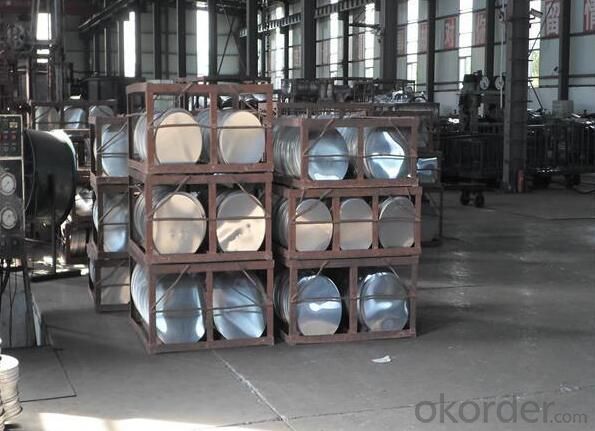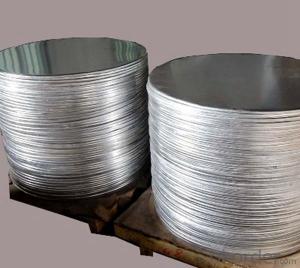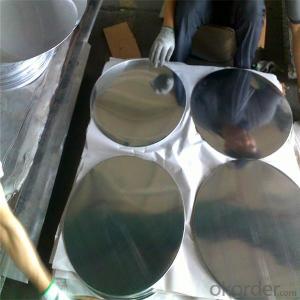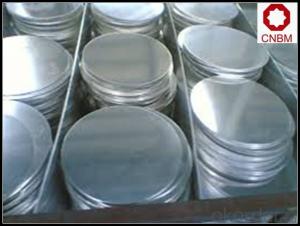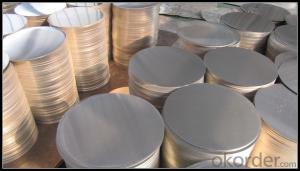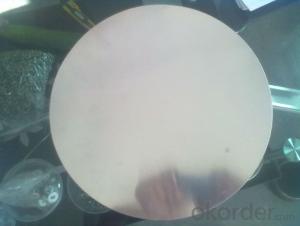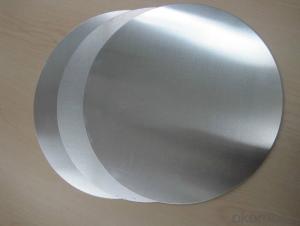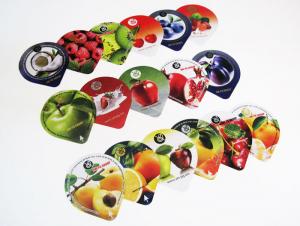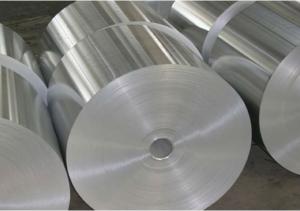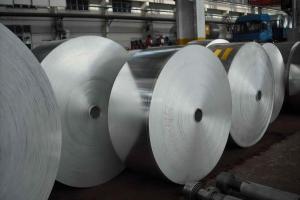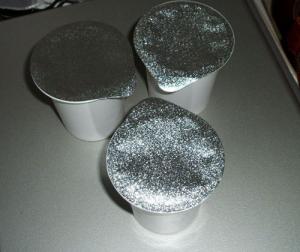Aluminum DC Aluminium Circle 1100 for Cooking Utensils
- Loading Port:
- Shanghai
- Payment Terms:
- TT OR LC
- Min Order Qty:
- 5 m.t.
- Supply Capability:
- 1000000 m.t./month
OKorder Service Pledge
OKorder Financial Service
You Might Also Like
Specification
1.Structure of DC Aluminium Circle 1100 for Cooking Utensils Description
• Product: Aluminim Circle
• Application: It is used in cookware, engineering, lighting purpose, fried pans, non-sticky pans, cooking pots, kettles, hard anodize cook wire, pressure cooker and house hold utensils, reflector of the light, etc
• Advantage: Deep drawing and hard anodizing quality Aluminum Circle Sheet can be supplied. Our Aluminum Circle is RoHS and REACH compliance and uses well-protected packing. Our circles are excellent material for producing cookware, utensil, pots, pans and kettles.
2.Main Features of the DC Aluminium Circle 1100 for Cooking Utensils
• High manufacturing accuracy
• Smooth surface
• No waves
• High strength of extension and yield
• Well packaged
3.DC Aluminium Circle 1100 for Cooking Utensils Images
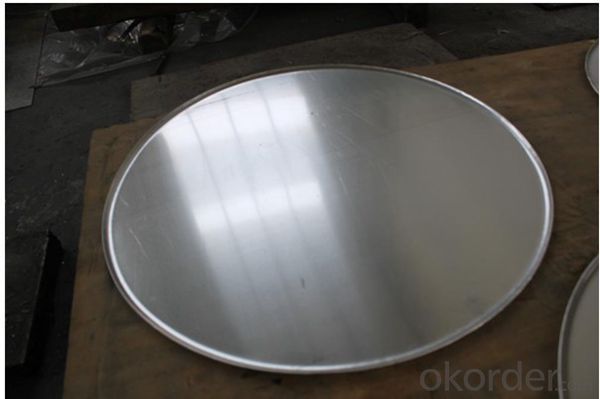
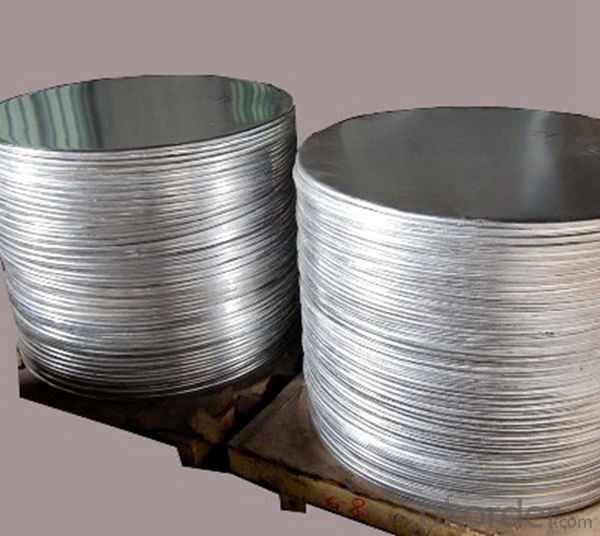
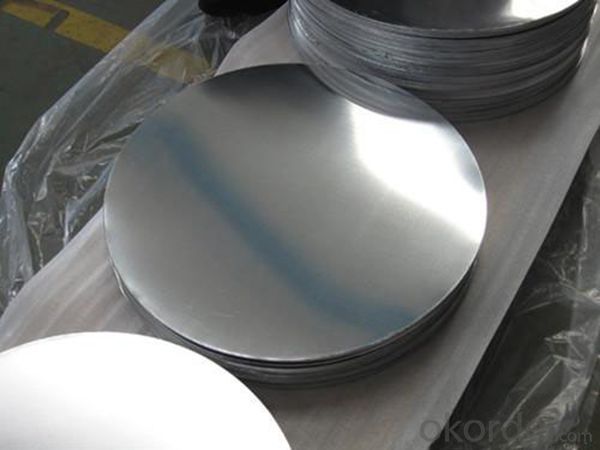
4.DC Aluminium Circle 1100 for Cooking Utensils Specification
Alloy | AA1050,AA1060,AA1100 AA3003etc. |
Temper | O,H14 |
Thickness | 0.5MM-4MM |
Diagonal | 100-1200MM |
Standard | GB/T 3880-2006 |
5.FAQ of Hot Rolled aluminum disc for cookware
We have organized several common questions for our clients,may help you sincerely:
①How about your company?
A world class manufacturer & supplier of aluminum coil and alloy blanks. Aluminum production base is comprised of 18 aluminum annealers, 10 coil and foil mills, 4 continuous production lines, 2 hot rolling production line and 3 prepainted lines.
Export 5000 tons per month to Asia, America and Middle East. Always do the best for our clients.
②Can you guarantee the quality of the products?
We are responsible for the quality of materials to get a long-term cooperation with clients in a reasonable period of time and we are glad to arrange and coordinate any third party inspection for you.
③What is the delivery time after purchase?
35 day after receiving client’s deposit or correct LC
5.Quality contral:
1. Professional Quality Control Team
v Inspecting ingot before melting
v Inspecting aluminium coil stock before cold rolling
v Inspecting finished goods before package
v Inspecting package, loading before shipment
2. Guaranteed by ISO 9001:2008 (SGS)
3. Guaranteed by FDA, EN 602, TPCH etc
- Q: This question asks about the impact of aluminum usage on the global economy, including its role in various industries and its influence on trade and economic development.
- <p>The use of aluminum significantly affects the global economy due to its versatility and widespread application in numerous industries such as construction, automotive, aerospace, and packaging. As the third most abundant element in the Earth's crust, aluminum is a key material in modern manufacturing, contributing to economic growth through job creation and technological advancement. It also plays a crucial role in trade, with major producers like China, Russia, and Canada exporting large quantities, influencing global supply chains and trade balances. Additionally, the demand for aluminum drives exploration and investment in mining, further impacting economic development in resource-rich regions. However, the environmental and sustainability concerns associated with aluminum production, such as energy consumption and waste, also present challenges that can affect economic stability and growth.</p>
- Q: Is it possible to utilize recycled aluminum in the production of new products more efficiently than current methods?
- <p>Yes, recycled aluminum can be used more effectively in new products than before. Advances in recycling technology have made it easier to purify and refine aluminum from various sources, including post-consumer waste. This not only conserves natural resources but also reduces energy consumption compared to mining and processing raw bauxite. Additionally, the circular economy approach promotes the design of products that are easier to disassemble and recycle, further enhancing the efficiency of using recycled aluminum in new products.</p>
- Q: Describe the impact of silicon on the properties of aluminum alloys.
- <p>The addition of silicon to aluminum alloys significantly enhances their properties. Silicon increases the alloy's fluidity, which is beneficial for casting processes, leading to improved casting quality. It also raises the alloy's resistance to corrosion, particularly in marine environments. Furthermore, silicon additions can improve the alloy's mechanical properties, such as strength and hardness, without significantly compromising ductility. This makes the alloy more suitable for applications requiring wear resistance. However, it's important to note that excessive silicon can lead to a decrease in the alloy's toughness and increase the risk of hot cracking during casting.</p>
- Q: Is it feasible to use pure aluminum for the production of coins or medals that maintain their longevity and aesthetics?
- <p>While pure aluminum is lightweight and corrosion-resistant, it is not typically used for making coins or medals due to its low melting point and softness. Coins and medals often require materials that are harder and more durable to withstand wear and tear over time. Additionally, pure aluminum is less visually appealing as it does not have the luster or reflective qualities of other metals like silver or gold. Alloys are generally preferred for coinage and medals because they offer better durability, resistance to wear, and can be tailored to have specific properties like hardness and resistance to corrosion.</p>
- Q: Can reusing old aluminum foil be utilized for cleaning tasks in kitchen or bathroom areas?
- <p>Yes, old aluminum foil can be used for cleaning purposes in a kitchen or bathroom. It's particularly effective for scrubbing pots and pans, removing burnt-on food, and cleaning glass and tiles. The shiny side of the foil can be used to remove scuff marks from floors and the dull side can be used to scrub away stubborn stains. However, it's important to avoid using foil that has been in contact with acidic or corrosive substances, as it may have become damaged or weakened, and could potentially scratch surfaces. Always test on a small, inconspicuous area first to ensure it doesn't damage the surface you're cleaning.</p>
- Q: What are the methods to prevent aluminum from corroding?
- <p>To prevent aluminum from corroding, several methods can be employed. One effective method is anodizing, which involves applying a protective oxide layer on the aluminum surface to enhance its resistance to corrosion. Another approach is using protective coatings such as paints or enamels that act as a barrier against corrosive elements. Additionally, alloying aluminum with other metals can improve its corrosion resistance. Regular cleaning and maintenance, avoiding contact with corrosive substances, and controlling environmental conditions such as humidity can also help in preventing corrosion.</p>
- Q: Is it safe to use aluminum cookware for cooking food?
- <p>Yes, aluminum can be used to make cookware that is safe for cooking food. Aluminum cookware is widely used due to its lightweight, durability, and good heat conductivity. While there were concerns about aluminum's potential health effects, current research indicates that the amount of aluminum leached into food during normal cooking is minimal and not harmful to health. However, it's important to avoid using abrasive cleaners or utensils on aluminum cookware to prevent scratching, as this could increase the amount of aluminum that might be released into food.</p>
- Q: Is aluminum a suitable material for manufacturing solar panels?
- <p>Yes, aluminum is commonly used in the manufacturing of solar panels. It is utilized primarily for the frame of the solar panel, providing structural support and protection. Aluminum is chosen for its lightweight, high strength, and corrosion resistance, which are ideal properties for outdoor applications like solar panels. It also helps in heat dissipation, which is beneficial for maintaining the panels' efficiency. While aluminum is not used in the actual photovoltaic cells, its role in the panel's construction is significant.</p>
- Q: Is it possible to enhance the efficiency of solar panels by utilizing aluminum?
- <p>Yes, aluminum can be used to improve the efficiency of solar panels. Aluminum is lightweight, corrosion-resistant, and has good thermal conductivity, which can help in dissipating heat and maintaining optimal operating temperatures for solar cells. It is also used in the manufacturing of solar panel frames, providing structural support while reducing the overall weight of the panels. Additionally, some research suggests that using aluminum in the backsheet of solar panels can enhance their durability and efficiency. However, the extent of efficiency improvement depends on various factors, including the specific design and manufacturing process of the solar panels.</p>
- Q: Is it possible to utilize aluminum in the creation of innovative tools and equipment?
- <p>Yes, aluminum can be used to make new types of tools and equipment. It is a lightweight, durable, and corrosion-resistant metal, making it ideal for various applications. Aluminum's high strength-to-weight ratio and ease of machinability allow it to be used in the manufacturing of tools, machinery parts, and equipment across industries such as automotive, aerospace, and construction. Additionally, its recyclability and abundance make it an environmentally friendly choice for new tool and equipment designs.</p>
Send your message to us
Aluminum DC Aluminium Circle 1100 for Cooking Utensils
- Loading Port:
- Shanghai
- Payment Terms:
- TT OR LC
- Min Order Qty:
- 5 m.t.
- Supply Capability:
- 1000000 m.t./month
OKorder Service Pledge
OKorder Financial Service
Similar products
Hot products
Hot Searches
Related keywords
